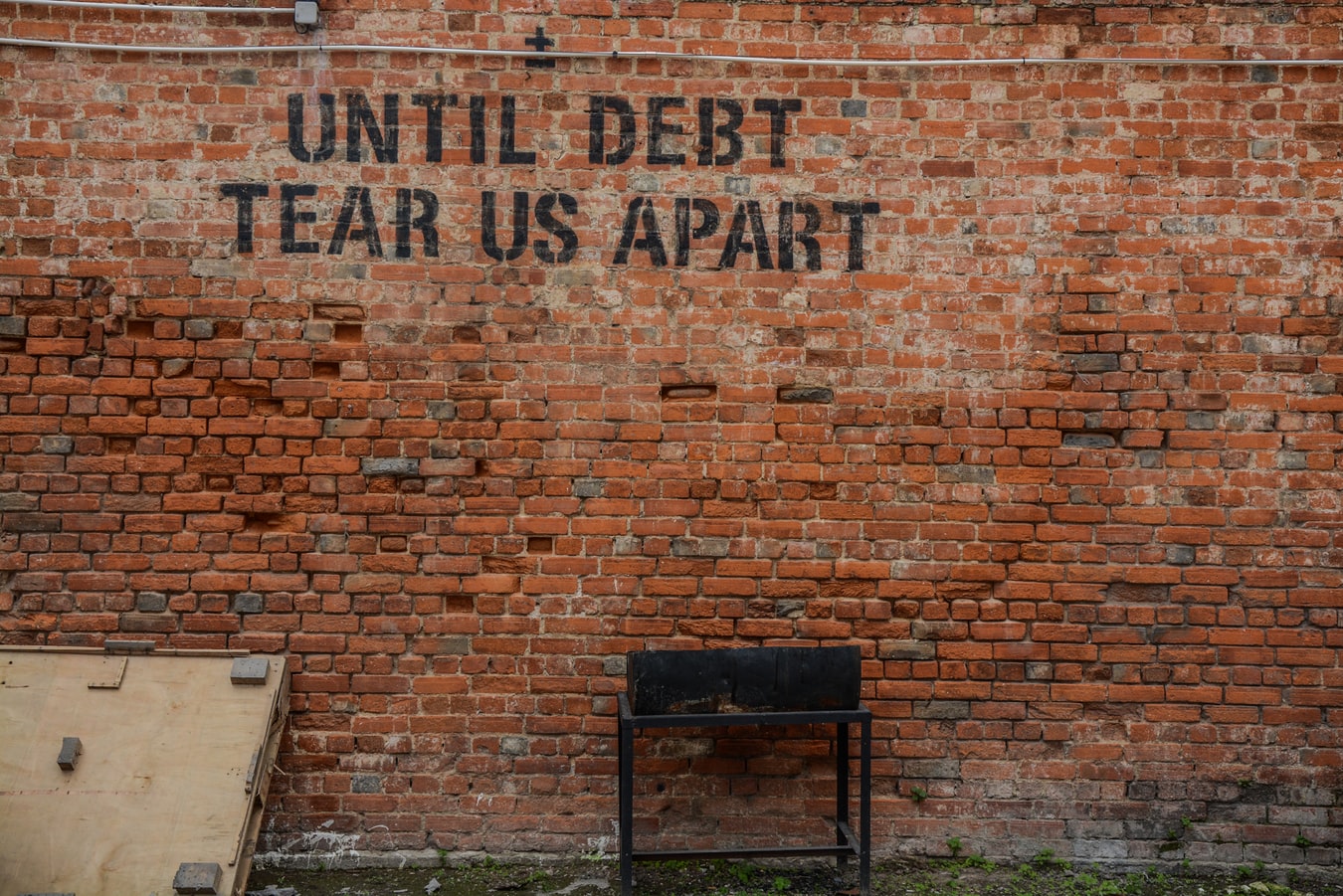When dealing with debt, you need to understand the specific language that comes with it. Bills, payment requests, and even account summaries use terminology that may not be familiar to you. Learning the definitions of these terms is important to manage your debt effectively.
We will provide all the necessary information about Warrants of Control, their connection to county court bailiffs, and what actions you should take if you are issued one.
What's Included?
What is a Warrant of Control?
If an unpaid County Court Judgement (CCJ) is issued against you, a creditor may apply for a Warrant of Control. A Warrant of Control granted by a court gives bailiffs permission to come to your home or business and take control of your belongings to recover the debt. The seized goods can be auctioned to pay off the balance owed.
How is a Warrant of Control issued?
County Court Judgment (CCJ)
A Warrant of Control can only be obtained by a creditor after failing to pay your CCJ. Getting this type of warrant without CCJ proceedings beforehand is prohibited by law.
Enforcement notice
Afterwards, you will receive an enforcement notice that demands you clear the debt within seven days. Please note that the court and enforcement agency may also include extra charges to your existing debt.
County court bailiff
If you do not make payment within seven days, bailiffs will visit you within 15 days in an attempt to take control of your possessions.
How can Credibble help me?
Dealing with debt can be overwhelming, especially when debt collectors or bailiffs are involved. Don’t panic! The Credibble Team is here to help. We can help you to stop proceedings and reduce the cost of your debt for free.
We offer a unique debt solution service partnered with Equifax, a world leader providing consumer credit report data. This means we have instant access to all your major debt without you having to search through your paperwork. Furthermore, we’re supported by the Natwest Accelerator Programme for business and have a multiyear relationship with the organisation. Our extensive and unique personal finance knowledge goes far beyond debt solutions – so you can trust that you are in safe hands.
What is a notice of issue of warrant of control?
Your creditors can request a warrant of control from the county court to encourage you to repay your debts if you do not comply with a County Court Judgment (CCJ). This warrant grants county court bailiffs the authority to take your possessions. A notice of issue of warrant of control is the official confirmation that your creditors have obtained a warrant of control against you.
You have seven days after receiving the notice to repay the amount you owe. After this period, the warrant will come into effect.
What’s the difference between county court bailiffs and high court enforcement officers?
Although county court bailiffs and high court enforcement officers have similar jobs, they carry out their duties based on the orders of different courts.
County court bailiffs
The county court bailiffs work on behalf of the national civil court in England and Wales to enforce court orders. When a court order, such as the County Court Judgment, is issued, a county court bailiff is hired to collect any unpaid debts.
As the name implies, a High Court Enforcement Officer is an agent who represents the High Court of Justice in England and Wales for enforcement purposes.
High court enforcement officers
High court enforcement officers handle court orders for debts exceeding £100,000, which fall outside the scope of the Consumer Credit Act of 1974. They use a legal document called a high court writ or high court writ of control. This document empowers officers to access your property, take your possessions, and sell them to repay your outstanding debts.
How can I stop enforcement agents trying to collect money owed?
If you receive a CCJ, paying it off as soon as possible is important to avoid it progressing to the enforcement stage where a Warrant of Control may be issued. If the Warrant of Control has already been issued and bailiff action is about to happen or is already happening, there are ways to stop or postpone it.
To suspend the warrant, you must fill out an N245 form and pay the court fee. The court must review your application and cannot reject it. However, bailiffs may still come to your property until the court approves the suspension.
What happens now I have received a Warrant of Control?
If you have received a Warrant of Control, there is a high chance that the bailiffs will take action. However, it is important to note that bailiffs must follow certain rules and regulations.
Enforcement rules for county court bailiffs
Understanding the rules can give you the confidence to stand up for yourself when someone comes to your door.
Working hours
Bailiffs are permitted to visit your home or business only from 6am-9pm. If an agent comes outside of these hours, it is against the law. You have the right to contact the authorities and report the incident.
Forced entry
You are not obligated to allow a bailiff to enter your premises, and they can only use forceful entry under certain circumstances:
- Your goods are now under their control.
- You have been informed with a notice period of at least 48 hours.
- On a previous visit, you allowed them in.
- Either party has broken the agreement that was previously made.
You can file a complaint if a bailiff tries to enter your property outside the allowed timeframes.
Hire purchase items
Bailiffs are prohibited from taking possessions that do not legally belong to you, such as items obtained through hire purchase (HP) agreements, including vehicles.
Having a copy of your hire purchase contract with you is important, as you may be asked to present it as evidence for the items under hire purchase. However, if you have already finished paying for the items, they will be considered as your property, and you won’t need to show the contract.
Item restrictions
Contrary to popular belief, bailiffs cannot take everything you own. It’s important to note that they can only seize items that are visible and within their access, as they cannot take things by simply peering through your letterbox or window.
What items are off-limits for an enforcement agent?
Some items that county court bailiffs are not allowed to take include:
- Essential household appliances such as fridges, cookers, or washing machines
- Your mobile phone or landline
- Medical equipment or items necessary for caring for yourself or others
- Pets or animals that provide assistance
- Tools or equipment that are necessary for your job (up to £1,350 in value)
- Items that you are currently using (though they may return to collect these later)
Bailiffs want to take control of my goods, what can I do?
Before the goods are seized
You can prevent bailiffs from seizing your goods by setting up a controlled goods agreement before they initiate the enforcement process. Under this agreement, you can arrange to make payments to satisfy your debts and avoid seizing your goods. However, failing to make at least one payment per the agreed payment plan will lead to the repossession of your goods.
After the goods are seized
Just because the bailiffs confiscated your items doesn’t mean you lost them forever. The agents will store the goods for seven days and then send them to an auction house. You will receive a Notice of Sale to inform you about this.
You have a week to contact the company you owe money to, and either pay the full amount ordered by the court or devise a payment plan that works for both parties. If the items are sold at auction, and the value exceeds what you owe, you will receive the surplus.
Frequently Asked Questions
What happens after a warrant of control is issued UK?
After a warrant of control is issued, a certified bailiff can force entry to your home or business to seize goods of equivalent value to repay the debt. [1]
Does a warrant of control affect your credit score?
No, a warrant of control alone does not directly affect your credit score. But it indicates serious debt issues that could lead to court judgments affecting your score. [2]
What is a warrant for debt UK?
A warrant for debt in the UK authorises bailiffs to take control of goods from property to sell at auction to repay owed money and fees after other collection methods have failed. [3]
What is a warrant of control on credit card debt?
A credit card provider can apply for a warrant of control allowing certified bailiffs to enter homes and seize property to sell to repay unpaid credit card debt. [4]
What happens after a warrant of control is issued?
After the issue, an enforcement agent can enter your property to identify and remove goods to sell at auction to recover the debt owed and fees. [1]
Do I have to pay a warrant of control?
A warrant of control is a legal order, so the debt must be paid. But you may be able to negotiate halting enforcement action by arranging a repayment plan. [5]
Can bailiffs enter your home with a warrant?
Yes, with a warrant of control, a certified enforcement agent can legally enter your home to identify and seize goods to sell to repay your debt. [6]
Is sending bailiffs to collect payment a warrant of control?
No, bailiffs can collect scheduled payments without a warrant. A warrant of control authorises forced entry to seize goods to repay a debt. [7]
Can bailiffs enter without a warrant?
No, for homes bailiffs cannot legally enter without a warrant of control or execution. For commercial premises, they can. [8]
What can bailiffs take if I have nothing?
Bailiffs cannot take essential items but may seize luxury or valued goods. They may force entry to check if you claim to have nothing of value. [10]
Do police get involved with bailiffs?
Police don’t enforce debts but may attend for safety if bailiffs have a legal enforcement warrant and report of a potential breach of peace. [11]
References:
- https://www.citizensadvice.org.uk/debt-and-money/action-your-creditor-can-take/bailiffs/stopping-bailiffs/what-bailiffs-can-do-after-they-get-a-ccj-against-you/
- https://debtcamel.co.uk/no-ccj-credit-record/
- https://www.stepchange.org/debt-info/debt-collection/bailiffs-and-warrants-of-execution.aspx
- https://www.mirror.co.uk/money/what-happens-bailiffs-knock-your-11849180
- https://www.nationaldebtline.org/fact-sheet-library/bailiffs-ew/
- https://www.stepchange.org/debt-info/debt-collection/bailiff-visits.aspx
- https://www.citizensadvice.org.uk/debt-and-money/action-your-creditor-can-take/bailiffs/stopping-bailiffs/checking-bailiffs-rights-to-take-goods-and-money/
- https://www.citizensadvice.org.uk/debt-and-money/action-your-creditor-can-take/bailiffs/stopping-bailiffs/what-powers-do-bailiffs-have/
- https://www.moneysavingexpert.com/loans/debt-collectors/
- https://www.nationaldebtline.org/fact-sheet-library/bailiffs-ew/what-can-bailiffs-take/
- https://www.acas.org.uk/needing-help-with-bailiffs






